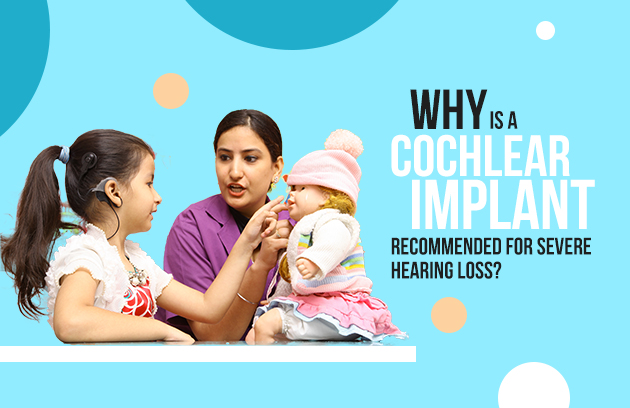Why is a Cochlear Implant recommended for severe hearing loss?
Hearing loss is among the most common health-related obstacles in the country. This obstacle nowadays affects almost 18 % of adults. However,, one in ten people in India aged 12 and older have double-sided hearing loss (in both ears).
Nowadays, we have amazing new technologies that help you treat your hearing disorder or help you get back the sounds you miss. Hearing aids, cochlear implants, and BERA hearing aids are examples of technologies that help people with hearing disorders.
Cochlear implants are just small; surgically implanted devices that can easily restore up to 70-80 word recognition and substantial hearing sensation in patients with severe to profound hearing loss.
Cochlear implants have been specifically approved for a wide range of patients who have a double-sided hearing loss, a single-sided hearing loss, or poor speech comprehension scores despite wearing properly fitted hearing aids.
Unfortunately, myths about the cochlear implant abound. Many patients don’t even know about this device as it can be an option for them, or they might be nervous about having surgery or transitioning from hearing aids (even if their hearing aids have become insufficient).
What is a cochlear implant?
A cochlear implant is a small electronic device that electrically stimulates the cochlear nerve, which is generally known as the nerve for hearing and is implanted in both external and internal parts.
At Asha’s speech and hearing clinic, cochlear implant surgery takes place under the proper guidance of professionals. Our experts also make sure to check the patient beforehand properly with all the CT scans and MRI.
The external part of this cochlear implant sits behind the ear and picks up sounds with a microphone. After that, it processes the sound and transmits it to the internal part of the implant.
With the internal part, it is specially placed under the skin behind the ear during outpatient surgery. At our clinic, our experts insert the thin wire and small electrodes into the cochlea, which is part of the inner ear. With the help of this wire, it sends signals to the cochlear nerve, which sends sound information to the brain to produce a hearing sensation.
However, with his cochlear implant, normal hearing is not restored, but with the appropriate therapy and practice, the person can have an improved hearing experience. This means that it can increase awareness of sounds in the environment, as well as communication skills through easier lip reading and listening.
At Asha Speech and Hearing Clinic, we believe that a cochlear implant may help someone with hearing loss restore or improve the ability to hear and understand speech. A cochlear implant is different than a hearing aid. A hearing aid can only make sounds louder but may not significantly improve speech understanding. So, when a person struggles to understand speech, even with appropriately fitted hearing aids, a cochlear implant should be considered.
Moreover, the cochlear implant can significantly increase hearing in adults only when it is tuned appropriately and the recipient is committed to rehabilitation therapy. Also, cochlear implants in infants and toddlers help them with their cognitive development.
Why might people need cochlear implant surgery?
If people are experiencing a very severe hearing loss and continue to rely heavily on lip-reading, then it is advised by the audiologist to go for a cochlear implant.
Cochlear implants’ help varies from person to person. Mostly, people experience significant growth in their awareness or degree of sound within days after their cochlear implant is turned on, which is generally about four to six weeks after surgery.
However, with the cochlear implant, speech understanding also improves more gradually as most individuals experience the improvement within the first six months. The size of this improvement varies considerably between people.
Cochlear Implant Surgery and Therapy in Children
The cochlear implant not only helps with hearing loss but also aids in the development of spoken language in children.
Cochlear implant surgery needs proper patient care as well as a long-term commitment from the patient and family to learn the new way of listening through a cochlear implant.
At Asha, we provide weekly auditory rehabilitation to our cochlear implants by highly trained professionals who specialize in the areas of listening and spoken language. After therapy of cochlear implants is very important for young children as at that time they are playing catch-up in their development of listening and speaking skills.
There are several factors that influence a child’s development of listening and spoken language with a cochlear implant:
- The age at the time of surgery (younger is better)
- Experience with hearing and language prior to surgery
- Consistent AVT therapy and a language-rich home environment
Conclusion
Cochlear implants are suitable for those people whose hearing aids aren’t able to improve their hearing or speech, or who are experiencing severe hearing loss that can’t be fixed with a standard hearing aid.
However, our expert audiologist conducts proper hearing exams and imaging tests to help determine whether the cochlear implant is right for you, as well as your level of hearing loss, or you can easily get proper treatment via a hearing aid.

